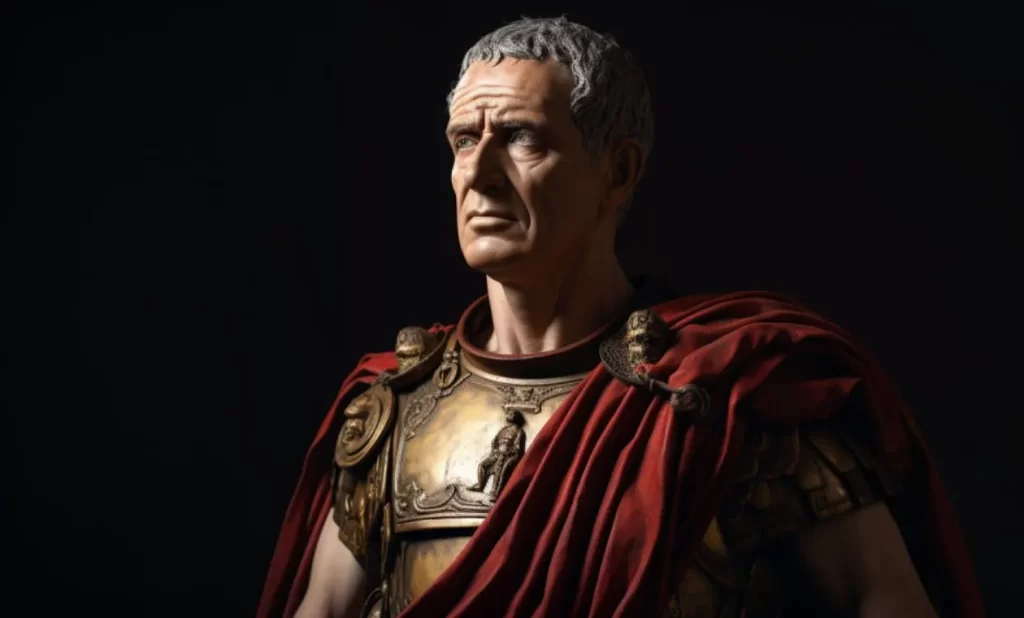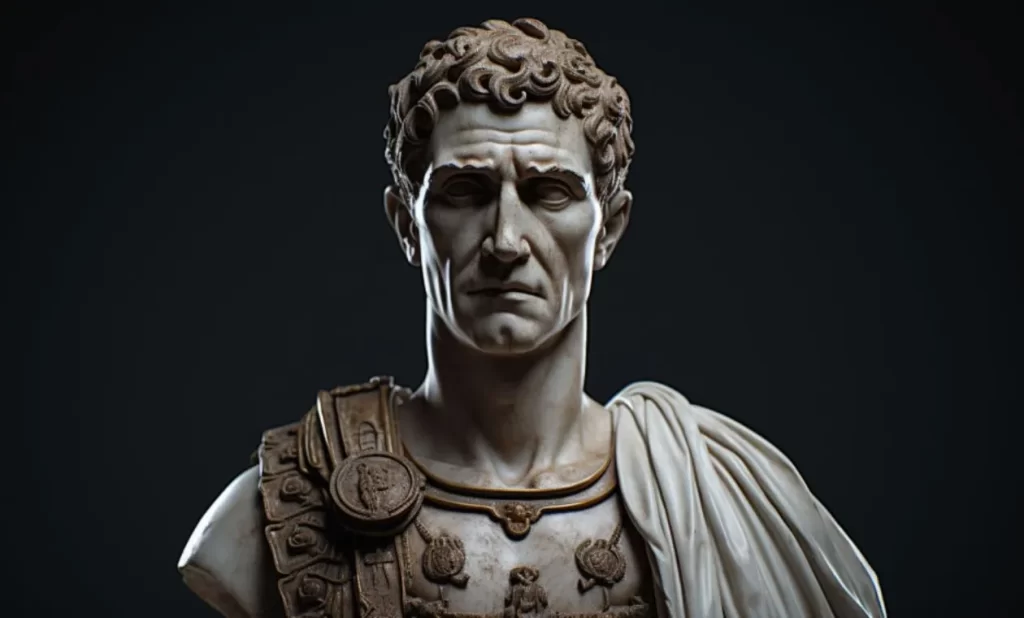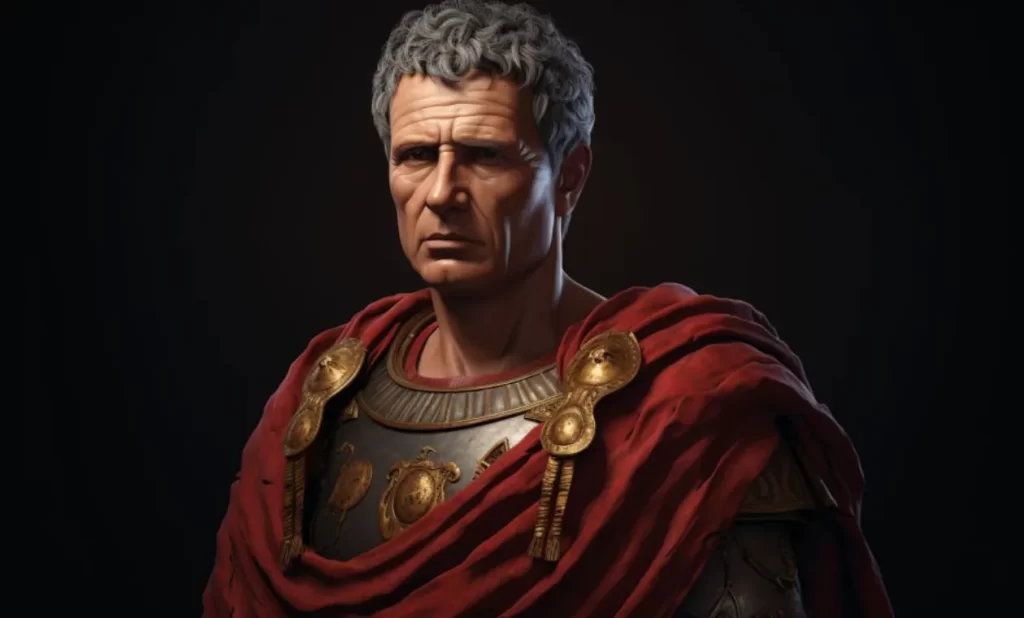
Emperor Decius, a pivotal figure in Roman history, ascended to the throne in the tumultuous period of the mid-3rd century AD. His reign, marked by both military challenges and religious reforms, holds immense historical significance. Understanding the biography of Emperor Decius is crucial for unraveling the complexities of this era.
Born in 201 AD, Emperor Decius, originally known as Gaius Messius Quintus Decius, rose from modest beginnings to become a formidable Roman emperor. His reign, spanning from 249 to 251 AD, was characterized by ambitious military campaigns and attempts to restore stability to the Roman Empire, which was grappling with internal strife and external threats.
Emperor Decius believed that a return to traditional Roman values, including a revival of ancient religious practices, was essential for the Empire’s well-being. This belief shaped his policies and led to the implementation of stringent measures to enforce state-sponsored paganism.
As we delve into the documentary-style exploration of Emperor Decius’s life, we’ll unravel the intricacies of his military endeavors, delve into the religious landscape of the time, and examine the challenges he faced in governing a vast and diverse empire. This journey will illuminate the historical significance of Emperor Decius and shed light on the enduring impact of his rule. Join us as we step back in time to explore the life and legacy of Emperor Decius, a leader whose influence reverberates through the annals of Roman history.
Biographical Sketch
Early Life and Background
Emperor Decius, born Gaius Messius Quintus Decius in 201 AD, hailed from a distinguished background. Little is known about his early life, but historical records suggest that he came from a Roman senatorial family, providing him with the education and connections necessary for a political career.
- Rise to Power: Decius’s ascent to power unfolded during a turbulent period in Roman history. In 249 AD, he emerged as a consensus candidate, chosen by the Roman legions to take on the role of emperor amid the chaos that followed the assassination of Emperor Philip the Arab. Decius’s military background and leadership qualities positioned him as a suitable candidate to restore order to the empire.
- Roman Throne: Upon assuming the imperial office, Emperor Decius faced immediate challenges. The Roman Empire was grappling with external threats from various fronts, including invasions by the Goths and other Germanic tribes. Decius recognized the urgency of stabilizing the empire, both militarily and culturally.
- Key Achievements and Milestones: Decius’s reign is notably marked by his military campaigns aimed at repelling external threats. In 250 AD, he confronted the Goths at the Battle of Abrittus, a significant engagement that, unfortunately, led to his demise. Despite the tragic end to his reign, Emperor Decius left a lasting impact on Roman history through his attempts to restore order and reinforce traditional Roman values.
His edicts, such as the famous edict requiring all citizens to perform a sacrifice to the Roman gods, reflected his commitment to reestablishing the religious and cultural foundations of the Roman state. While his reign was relatively short, the efforts of Emperor Decius during this critical period played a role in shaping the subsequent trajectory of the Roman Empire.
Emperor Decius’s Military Strategies and Campaigns:

Emperor Decius faced formidable challenges on the military front as soon as he ascended to the Roman throne. The external threats posed by various Germanic tribes, most notably the Goths, demanded decisive and strategic action. Decius, drawing upon his military background, initiated campaigns to safeguard the territorial integrity of the Roman Empire.
Notable Battles and Conflicts
One of the pivotal moments during Decius’s rule was the Battle of Abrittus in 251 AD. Fought against the Goths led by King Cniva, this battle became a defining event of his reign. Unfortunately for Decius, the encounter ended in a tragic defeat, and he became the first Roman emperor to perish in battle against a foreign adversary.
The Battle of Abrittus highlighted the complexities of Roman-Gothic relations and the challenges faced by the Roman military in managing incursions from Germanic tribes. Decius’s commitment to personally lead his forces in the field demonstrated his dedication to the welfare and defense of the empire.
Impact of Military Decisions
While Decius’s military campaigns faced setbacks, they also reflected the broader geopolitical landscape of the time. The Roman Empire, stretched across vast territories, often found itself contending with external pressures. Decius’s efforts, though not ultimately successful in some aspects, demonstrated the emperor’s willingness to confront these challenges head-on.
The military engagements under Decius’s rule had a lasting impact on Roman military strategy and the perception of imperial authority. The struggles faced during his reign would influence subsequent emperors in their approach to defending the empire against external threats. Despite the difficulties, Emperor Decius’s commitment to addressing the military challenges of his time left an indelible mark on Roman history.
Emperor Decius’s Religious Policies
Emperor Decius’s reign is notably characterized by his pronounced stance on religion, reflecting an era where the intersection of imperial power and religious identity played a crucial role in governance.
- Approach to Religion and Governance: Decius, viewing the stability of the Roman Empire as intricately linked to religious unity, sought to restore traditional Roman values and pagan worship. His approach was rooted in the belief that the favor of the gods was essential for the prosperity and security of the empire. Decius envisioned a united Roman identity, intertwined with a revival of traditional religious practices.
- Implementation of Religious Edicts: To realize his vision, Emperor Decius issued a series of edicts that mandated public adherence to traditional Roman religious rituals. One of the most significant decrees was the requirement for all Roman citizens to perform a sacrifice to the Roman gods and obtain a certificate attesting to their compliance. This marked a departure from the religious tolerance that had characterized previous periods.
- Consequences of the Edicts: The implementation of these religious edicts had profound consequences. It led to a period of religious persecution, particularly targeting Christians who refused to comply with the imperial decrees. The Decian persecution, as it came to be known, marked one of the earliest and most severe challenges faced by the Christian community within the Roman Empire.
The consequences of Decius’s religious policies extended beyond the immediate period of his reign, influencing subsequent emperors’ approaches to religion and governance. The tension between traditional Roman practices and the rise of Christianity would continue to shape the socio-political landscape in the later Roman Empire.
Challenges and Crisis Management
Emperor Decius ascended to the Roman throne during a tumultuous period, marked by external threats and internal challenges. His reign was characterized by the need for effective crisis management to maintain the stability of the Roman Empire.
- Examination of Challenges: Upon assuming power in 249 AD, Decius faced a myriad of challenges. The Roman Empire was grappling with external pressures, including invasions by the Goths and the broader context of the Crisis of the Third Century, marked by economic decline, military troubles, and political instability. Additionally, internal dissension and power struggles among the Roman elite further complicated the landscape.
- Strategies Employed: In response to the challenges, Emperor Decius implemented a series of strategies aimed at restoring order and strengthening the foundations of Roman authority. Recognizing the importance of a robust military, he initiated campaigns to repel external threats, with notable efforts against the Goths. Decius also sought to stabilize the economy, implementing measures to address the financial strain faced by the empire.
- Political and Social Crisis Management: Decius’s leadership during this turbulent period involved a combination of military prowess and administrative reforms. He emphasized the restoration of traditional Roman values, implementing policies to foster a sense of unity and loyalty among the population. Decius’s focus on religious revival, although contentious, was part of a broader strategy to address the perceived moral decline contributing to the empire’s challenges.
While Decius’s efforts demonstrated resilience and determination, the complex web of crises during his reign proved challenging to fully overcome. The lasting impact of these challenges would continue to shape the trajectory of the Roman Empire in the subsequent years.
Legacy and Historical Impact

Emperor Decius’s reign left an indelible mark on Roman history, influencing the trajectory of the empire and contributing to the ongoing narrative of the Crisis of the Third Century.
Assessment of Legacy: Decius’s legacy is complex and multifaceted. One of the most significant aspects is his response to the challenges faced by the Roman Empire during a critical juncture. His military campaigns, although met with varying degrees of success, reflected a commitment to defending the integrity of the empire against external threats. Decius’s emphasis on traditional Roman values and the restoration of religious practices was an attempt to address what he perceived as moral decay contributing to the empire’s troubles.
Lasting Impact of his Reign: While Emperor Decius’s reign was relatively short-lived, spanning from 249 to 251 AD, its impact was enduring. His policies, particularly the Decian Persecution aimed at restoring traditional Roman religious practices, had a profound effect on the relationship between the state and various religious communities. The repercussions of these measures reverberated through subsequent imperial reigns, influencing the dynamics of religious tolerance and persecution.
Contributions to the Roman Empire: Decius’s contributions to the Roman Empire lie in his efforts to stabilize a realm in crisis. His emphasis on military strength, economic stability, and moral rejuvenation reflected a comprehensive approach to governance during challenging times. While the effectiveness of his policies may be debated, the very attempt to address the multifaceted crises demonstrated a commitment to the welfare and continuity of the Roman state.
Decius’s Place in Roman History: Emperor Decius’s place in Roman history is as a ruler who faced extraordinary challenges and sought solutions within the framework of his understanding of Roman virtues. His reign is a testament to the complexities of leadership during a period marked by political, economic, and military upheaval. As a historical figure, Decius occupies a pivotal position in the narrative of the Roman Empire’s struggles and adaptations during the Crisis of the Third Century.
Conclusion
Emperor Decius, though his reign was relatively brief, stands as a pivotal figure in the annals of Roman history. His biography unveils a leader thrust into the tumultuous era of the Crisis of the Third Century, where the very fabric of the Roman Empire seemed on the verge of unraveling. Decius’s ascension to power marked a response to the profound challenges faced by the empire, and his attempts to restore stability and moral order have left an enduring legacy.
In the pages of history, Decius emerges as a leader who grappled with the intricacies of governance during a period of crisis. His military campaigns, while not without setbacks, underscored a commitment to the defense of the empire against external threats. The Decian Persecution, though controversial, reflected a determination to restore what he believed were the traditional foundations of Roman society.
Decius’s biography is a narrative of a ruler navigating a complex web of challenges, from military conflicts to religious and moral crises. While the outcomes of his policies may be debated, his efforts to address the multifaceted issues confronting the empire showcased a resilience and dedication to the Roman state.
The legacy of Emperor Decius endures through the lens of his reign, a chapter that speaks to the intricate interplay of power, crisis management, and the quest for stability in a time of profound uncertainty. His imprint on Roman history remains, inviting ongoing reflection on the nature of leadership during periods of historic upheaval.
























